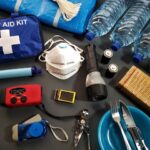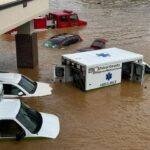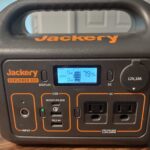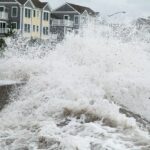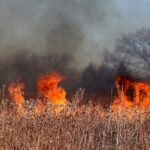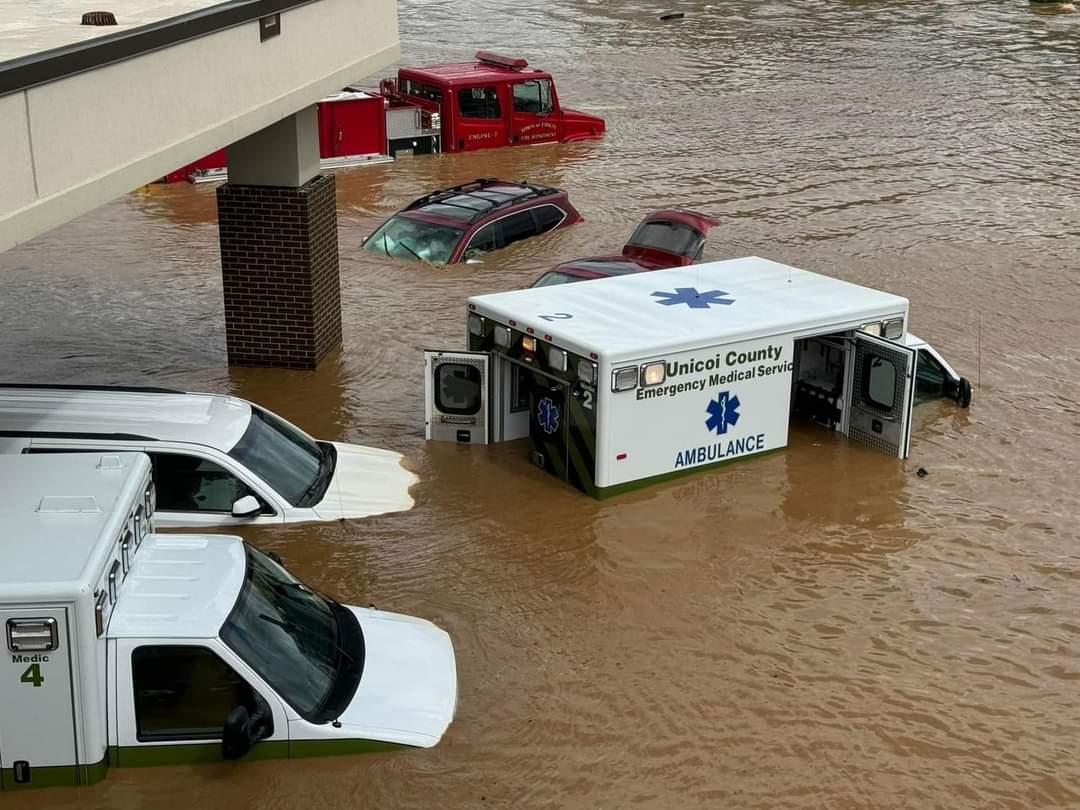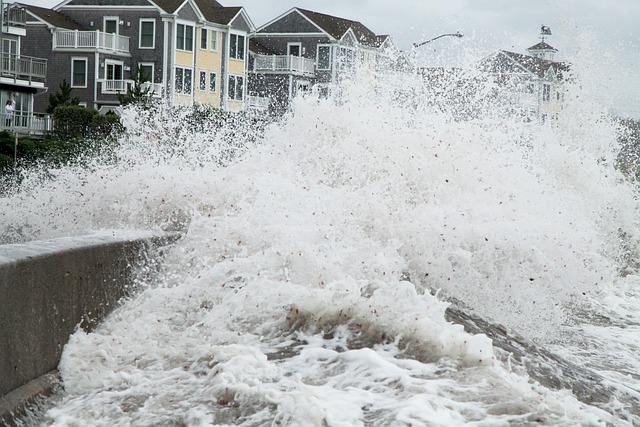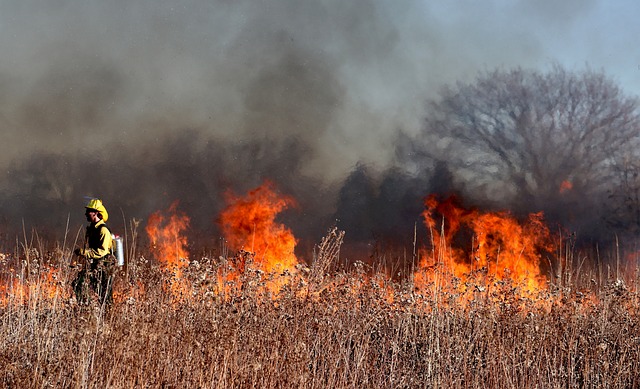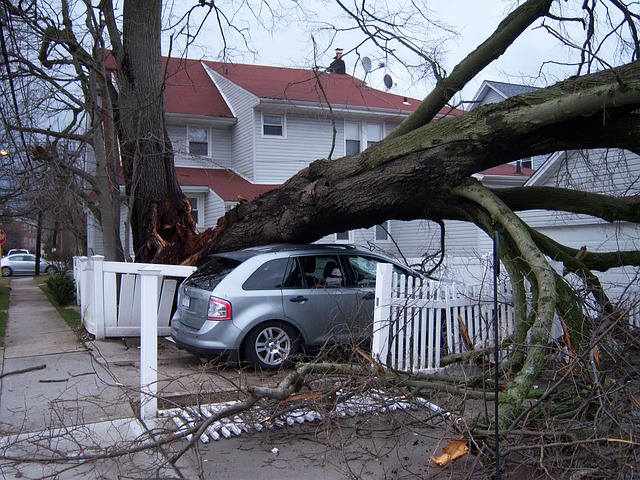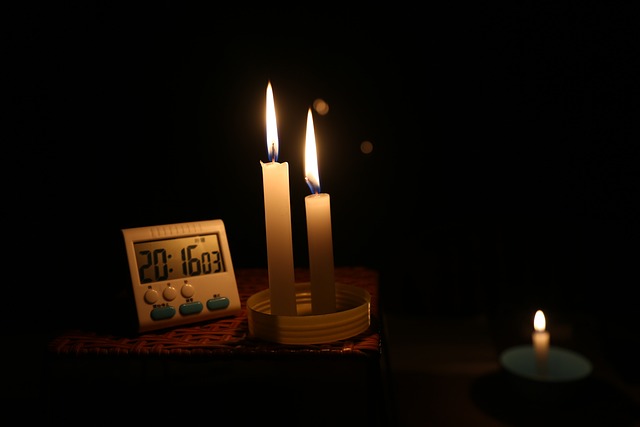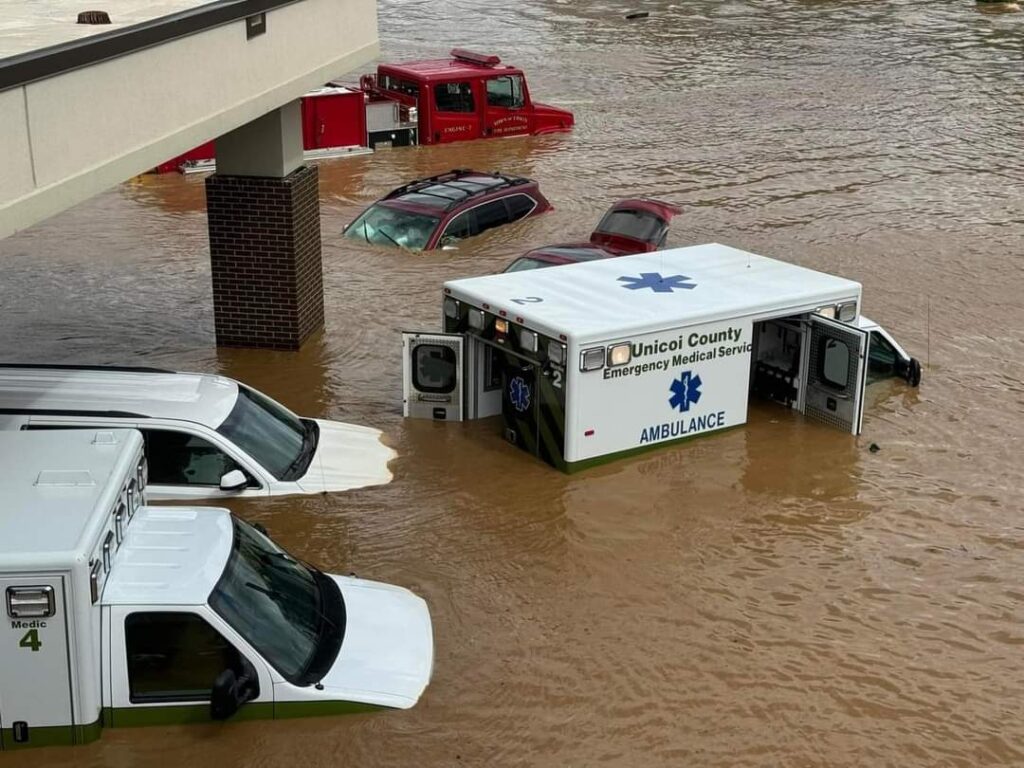
Hurricane Helene hit the Big Bend area of Florida as a Category 4 Hurricane with sustained wind speeds of 140mph at landfall on September 26, 2024. Record breaking storm surge and record-breaking rainfall left unfathomable destruction that many described as “Biblical”. The impacts of Helene stretched from Florida to Tennessee. As of this writing, the death toll is now at 90 people with over 100 missing people still unaccounted for, and millions remain without electricity across eight states
With hurricanes, the wind is not the only destructive force. The storm surge often causes the most damage and takes the most lives. That was definitely the case in Florida with Helene as well. Parts of the Florida Gulf Coast saw record-breaking storm surge with some areas reporting 15ft storm surge. Homes built on stilts had the water reach the bottom of their 2nd story. Other houses were washed away completely like they were paper boats on a river. After the peak surge receded, many residents were seen the next morning being rescued by crews in inflatable boats with their family, pets, and just the clothes on their back.
Despite days of warnings, despite endless pleas from state and city officials and emergency managers, many residents either ignored it, or just didn’t believe it was going to be as bad as predicted. One county official told the residents who chose not to evacuate to write their name and date of birth on their leg to make it easier for them to identify them after they recover their body. Had they been better informed, had they made the necessary precautions and preparations we advise here, many lives would have been spared.
Post Landfall Effects
After landfall, Helene downgraded to a tropical storm but continued to dump huge amounts of rainfall. The State of Georgia experienced record-breaking rainfall triggering extreme flash flood warnings. Creeks and rivers burst out of their banks and took over neighborhoods, streets, and highways. Residents attempting to pass through flooded streets found themselves stuck and their car disabled. Flood waters lifted cars and washed them miles downriver and sadly, in some cases, claiming the lives of those still inside.
Many people didn’t expect it, but East Coast states like the Carolinas were hit hard from a Gulf Coast hurricane. The storm moved in quickly, had a lot of moisture in it, and followed a three-day rain event already affecting the area. Creeks and rivers took over the streets. Ponds became lakes. Lakes topped dams, forcing residents downriver to evacuate with just the clothes on their backs. Emergency managers issued dire evacuation orders to residents in multiple western-North Carolina towns. As of this writing, Greenville, SC still does not have power. They have one grocery store that is running on generators. Residents are charging their phones, getting food, and exchanging information all at the one grocery store that is operational.
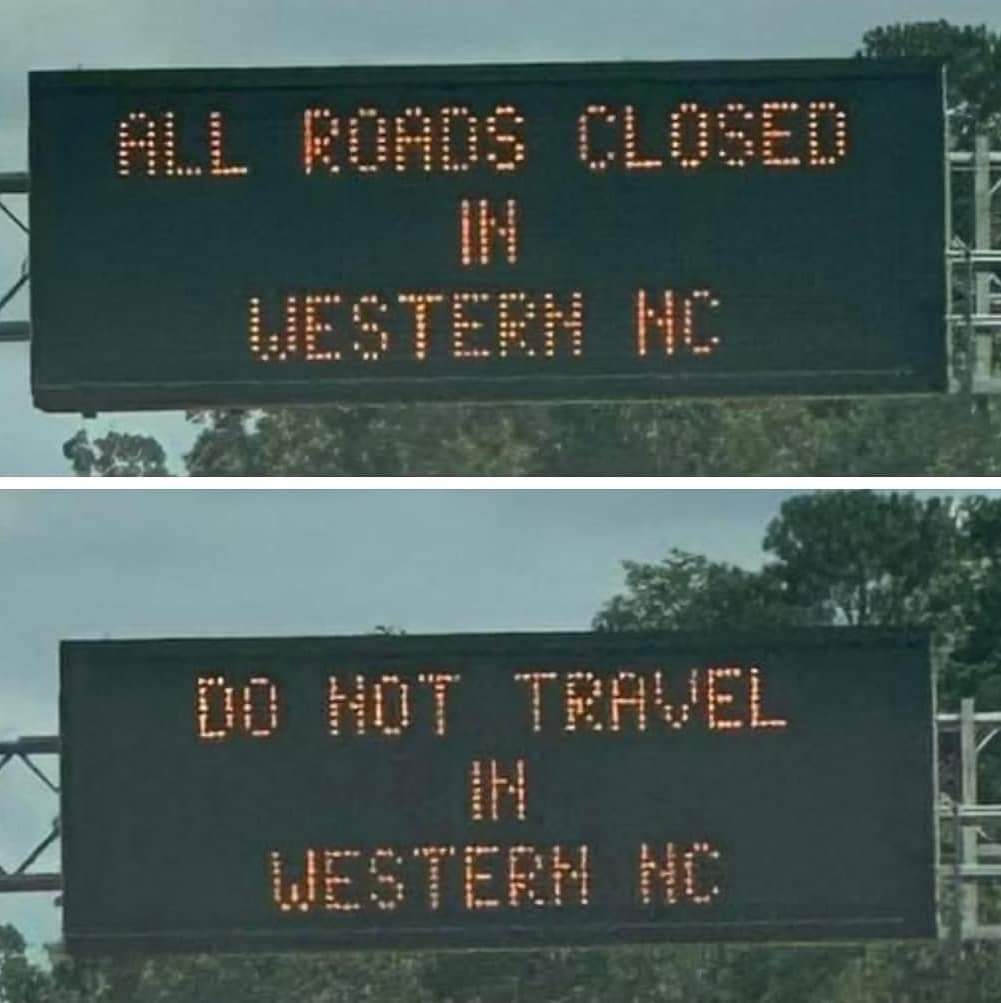
Asheville, NC, home of the Biltmore Estate, has been devastated. Their city streets are now lakes and rivers. Large commercial propane tanks were seen floating away from their retail lot. Restaurants, hotels, shops, and gas stations that were the lifeblood of this tourist town are all underwater. Smaller towns in North and South Carolina are completely cut off from the outside world. There is no cell service, no electricity, and the roads are impassable. Rivers have washed away bridges and roads causing small mountain towns to essentially become islands in the middle of the Appalachian Mountains.
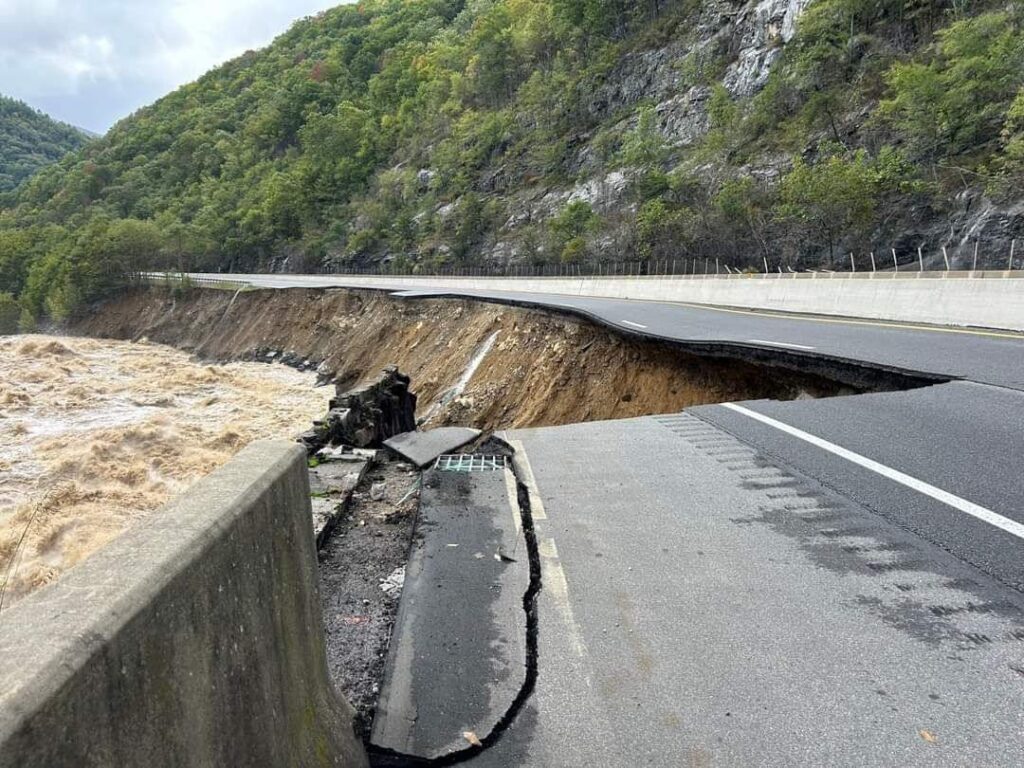
In Tennessee, Interstate 40 running from TN to NC has been washed away. A major commercial and civilian travel corridor through the Smokey Mountains is now impassable. Just like the Carolinas, many small towns have been devastated by the flood waters rushing down the mountains and wiping out entire communities. Landslides off the smokey mountains have covered highways with 10+feet of mud and tree debris.
There are over 200 missing people across 6 states as a result of this Hurricane. Social media is flooded with pleas for anyone to help find their missing loved one. There are countless stories where someone was last known to be on a particular road that was later discovered to be washed away. Spouses, siblings, parents have been missing for days with no active cell phone signal indicating hope that they may be alive.
Lessons to Learn
The devastation is clear, and there is still work that needs to be done immediately, but what can we learn from this already? What did we do right, and what did we do wrong here. How could we have prepared better or reacted better for this emergency event.
Stay Informed
The best way we as Civilians can be prepared is to be informed. The more we know, the better we can plan, prepare and react. The National Hurricane Center did something with Helene that they don’t normally do. They issued hurricane warnings for the Florida Coast earlier than they ever have, before the storm was even a hurricane. While the Tropical Storm was still south of Cuba, residents in Florida were already being told to prepare.
Both The Weather Channel and the National Hurricane Center also predicted the storm would rapidly intensify. They warned the residents of the Gulf Coast that this tropical storm would soon become a Hurricane but then rapidly intensify into a major hurricane, which it did. Helene went from a Category 1 to a Category 4 hurricane in less than 24 hours.
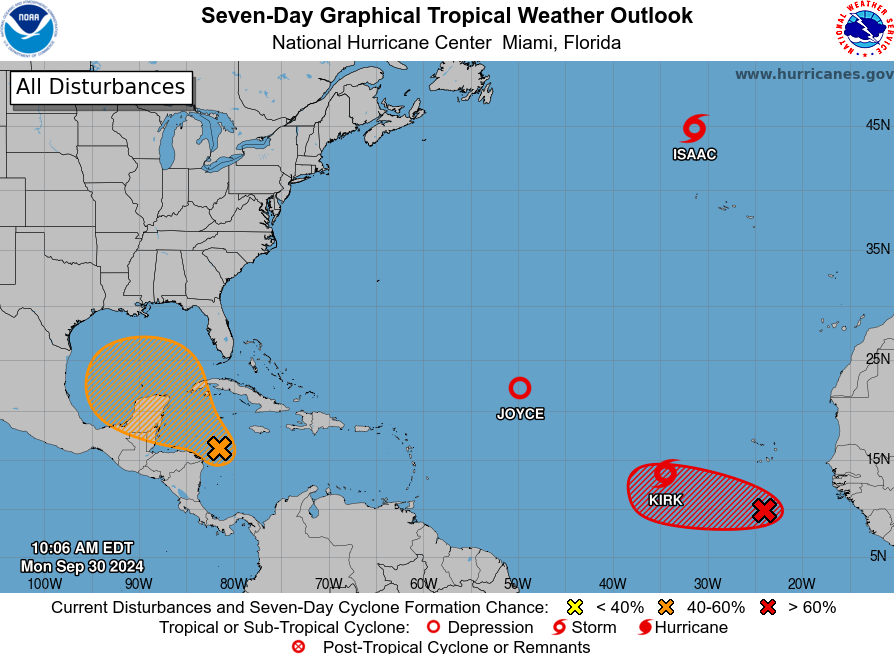
Stay connected. Be informed. If you live in a hurricane prone area, monitor the National Hurricane Center’s website for predictions during hurricane season. Watch the local weather news. Take Flash Flood Warnings seriously.
Additionally, stay connected to your people: your family, friends, and neighbors. Your community could send out notices that trees are down, roads are blocked, or power is out. If you are connected, you can help others but you can also reach out for help.
Physical Preparations
Make sure you have a battery powered radio with a hand-crank or solar power option. Consider getting two-way radios and sharing them with family members nearby. Keep a two-way radio in your car and one at home. Have a plan to turn on the radios during a major event like this in case someone is trying to reach out for help. Considering buying a HAM radio for a longer-reaching communication option. Get some training on it. Learn how to use it. In the event of an emergency, you can broadcast your distress without a license, which is normally required for all non-emergency communications.
Always make sure you have enough food and water stored to survive 72 hours. If you can survive on your own for 72 hours, your chance of survival goes through the roof. If you were cut off from the outside world by floods or landslides, you’d be able to survive on your own for three days before even needing help. Store enough water and non-perishable food in your home for each member of your household to survive 72 hours.
Consider a backup power option like a gas generator or even a solar power bank. There are many great solar power bank options to choose from. Here is an article we did about the Jackery 300.
Make sure your evacuation preparations are made. This means know your evacuation routes, have a full tank of gas, and consider back up emergency travel arrangements. If flooding is a concern, consider keeping an inflatable raft in your trunk and one in your home. You do not want to wade or swim through flood waters as they are filled with unseen dangers such as swift water, debris, toxins, and even potentially dangerous animals.
Finally, keep a First Aid kit on hand. From scratches, bug bites, and poison ivy, to deep cuts and trauma injuries, you should be prepared to take care of many common medical situations in an emergency. Keep a first aid kit in your home and consider keeping a kit in your car. Emergencies don’t just happen when you are home. Also, make sure you know how to use everything in your kit. Tools without the knowledge to use them are worthless.
Conclusion
As of today, the search and rescue efforts are still ongoing. Pray for those affected by this devastating natural disaster. Help if you can. But we all can learn from this event. We can all better prepare so we are not left helpless in a life or death situation.
Stay plugged into the Civilian Preparedness community. Share breaking news, and survival tips. If we prepare as individuals, we make the entire community stronger. Stay safe out there.
Note: I am an affiliate with Amazon and may receive a commission from products purchased from Amazon. This helps me continue to put out emergency preparedness information for you.
